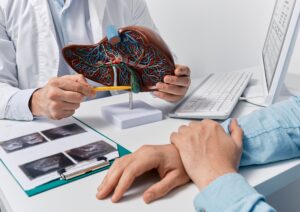Genetics and addiction are closely intertwined. Research has shown that genetic factors play a significant role in an individual’s susceptibility to developing substance abuse disorders.
Understanding the complexities between genetics and addiction can provide valuable insights into effective prevention and treatment strategies for individuals struggling with substance use disorders.
How Genetics Impacts Addiction
Genetics significantly impact addiction by influencing an individual’s vulnerability to developing substance use disorders. Research has shown that certain genetic variations can increase the likelihood of addiction. These genes can affect how a person’s brain responds to drugs and alcohol.
Additionally, genetics also determines how quickly someone may become dependent on substances and their ability to quit using them.
Predisposition to Addiction
Individuals can inherit a predisposition to addiction through their genetic makeup. Specific genes can make some individuals more susceptible to developing substance use disorders. These genes affect how the brain processes and responds to addictive substances.
Additionally, having a family history of addiction can further increase an individual’s risk of developing an addiction themselves. Understanding one’s genetic predisposition to addiction helps implement preventative measures to avoid substance use and potentially avoid becoming addicted to substances.
Risk Factors Between Genetics and Addiction
Several risk factors link genetics and addiction that can influence whether someone develops an addiction to alcohol and substances. Below are different risk factors for genetics and addiction.
Family History:
Having a family history of addiction significantly increases an individual’s risk of developing substance use disorders. Research has shown that genetic factors account for 40 to 60% of the risk for alcoholism and drug addiction.
Genetic Variations:
Certain genes can influence an individual’s response to drugs and alcohol, making them more susceptible to becoming addicted. For example, gene variations related to dopamine and serotonin can impact how the brain processes rewarding stimuli from substances.
Co-Occurring Mental Health Disorders:
Genetics can also predispose individuals to both addiction and mental health disorders such as depression, anxiety, or bipolar disorder. Co-occurring conditions can exacerbate substance use issues and make it harder for individuals to recover from addiction.
Environmental Factors:
While environmental factors are not directly tied to genetics, they also play a role in addiction vulnerability. Environmental influences like trauma, peer pressure, socioeconomic status, and availability of substances contribute to the development of addictive behaviors.
Genetics and Alcohol Abuse
Genetics can be influential in alcohol abuse and dependence. Research has identified specific genes that can determine an individual’s risk of developing alcohol use disorder. Some people may have genetic variations that impact how their bodies metabolize alcohol, leading to increased tolerance.
This, in turn, causes them to drink more. Additionally, certain genes can affect brain chemistry and increase susceptibility to the rewarding effects of alcohol. The pleasurable effects experienced make it more difficult for individuals to control their drinking habits. Having a family history of alcohol abuse also increases the likelihood of developing problems with alcohol.
Mental Health, Genetics, and Addiction
Mental health, genetics, and addiction are interconnected in complex ways. Individuals with certain genetic predispositions can be more vulnerable to mental health disorders and substance abuse issues. Additionally, substance abuse often co-occurs with mental health conditions such as depression, anxiety, or bipolar disorder.
Genetic factors also contribute to the development of mental health disorders and addiction. It influences brain chemistry, behaviors, and responses to stressors. Specific genes increase susceptibility to conditions like depression or anxiety. In turn, this increases the risk of turning to substances as a form of self-medication and developing addiction.
How Addiction Affects the Family
Addiction can have profound and far-reaching impacts on the family. It strains relationships, creates emotional distress, and disrupts normal day-to-day functioning. Family members often experience anger, shame, guilt, and helplessness as they witness their loved one struggle with addiction.
The dynamics within the family may shift as a result of addiction. Communication breakdowns and trust issues become more prevalent. Children affected by addiction are particularly vulnerable to negative consequences such as neglect or trauma.
They can also associate addiction as being normal behavior, increasing their predisposition to addiction. Financial problems tend to occur as well. Furthermore, the stress caused by these issues increases tensions and impacts the family’s overall well-being.
Treatment
Addiction treatment involves a combination of evidence-based and holistic therapies, medication-assisted treatment (MAT), medication management, and support services. These are personalized to the individual’s specific needs. Treatment usually begins with medically supervised detox. Therapy options may include cognitive-behavioral therapy (CBT), motivational interviewing, or group therapy.
These approaches can help individuals address underlying issues contributing to their addiction and develop coping skills for managing cravings and triggers. The goal of treatment is to help individuals overcome their substance use disorder and maintain long-term recovery.
Additionally, when addressing genetics and addiction, it is essential to seek gender-specific treatment. Gender-specific care addresses the unique needs of men and women, like our women’s detox program at Retreat of Broward.
Genetics and Addiction: Exploring Family Therapy
Family therapy is an important component of addiction treatment. It involves working with the family unit to address and overcome issues related to substance abuse. Family therapy helps improve communication, rebuild trust, and foster a supportive environment for recovery.
Through family therapy, individuals in treatment receive additional support from loved ones during their recovery journey. It also provides families with tools and strategies for effectively supporting their loved one’s sobriety beyond treatment.
Begin Addiction Detox Treatment in Pompano Beach, FL
Ready to regain control over your life and break free from addiction? Retreat of Broward in beautiful Pompano Beach, Florida, is here to help. Our addiction detox treatment center provides the perfect place to start your recovery journey. Our caring and compassionate team offers individualized treatment programs personalized to your needs.
Contact us today to begin your recovery journey for a brighter and healthier future.






